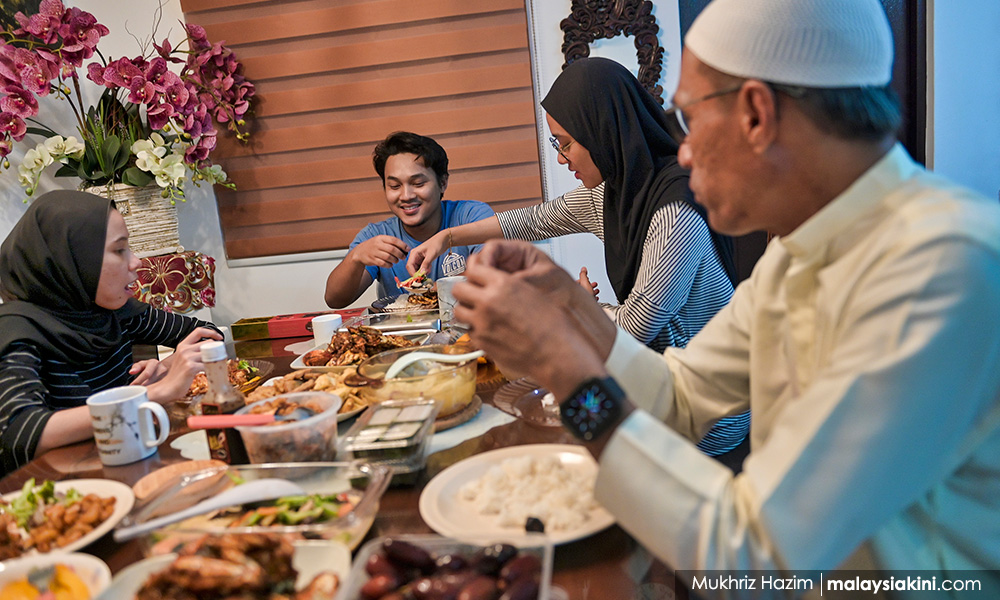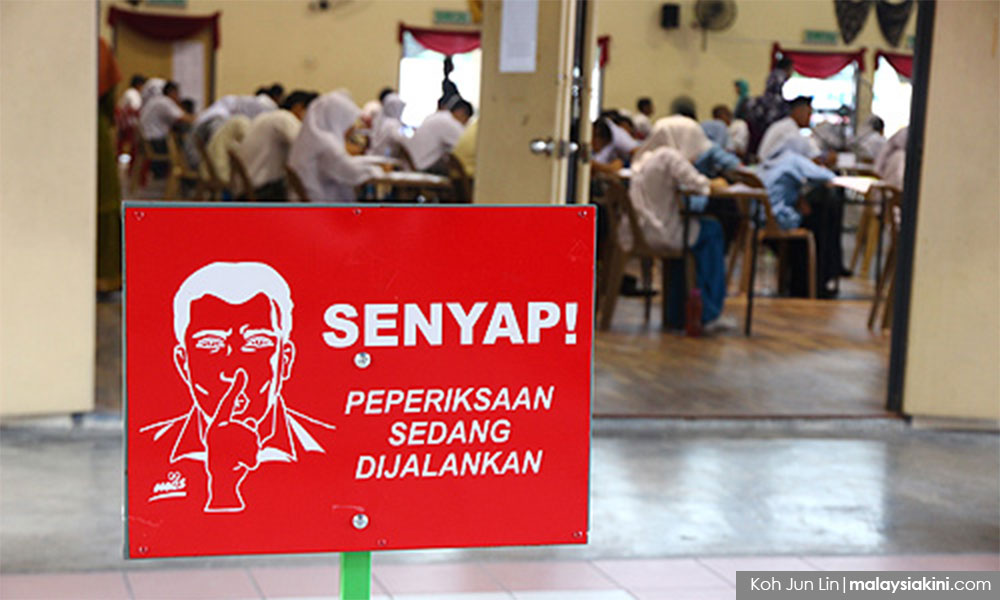I was raised in an Indian-Muslim community in Penang where the month of Ramadan is loved and celebrated.
In my community, fasting is extremely important to the faith. Even if one is exempted from fasting due to being underaged, too old, or suffering from illness, those who still chose to fast will be treated like a champ.
I had cousins as young as four and five years old who would fast for an entire month in Ramadan. Their proud parents and grandparents would be over the moon, announcing their accomplishments to every member of the family.
Unlike them, I was not good at fasting.
My first fasting experience was at the age of six. It only lasted three hours, most of which was spent sleeping. Nevertheless, my parents celebrated it and made me feel special.
I continued my fasting journey as a child, accumulating a few hours of fasting from one day to another. Four days of three-hour fasting became one full day; two half-days of fasting became another full day.
Whenever relatives asked if I was fasting, I would proudly announce the total number of accumulated days I had fasted.
But no matter how hard I tried to fast; I would always end up being compared to my younger cousins who had perfect fasting records. That often made me feel lousy, as though I was not as good of a Muslim compared to them.
Things were different at home though. My devout Muslim parents never forced me and my siblings to fast - instead, they took other religious acts such as daily prayers a lot more seriously.
Fasting, however, was on a sliding scale as we were young children at the time.
Although my parents did not enforce fasting, they were committed to the holy month of Ramadan and wanted to build the excitement of fasting in our home.
Since young, my siblings and I were always encouraged to wake up for sahur, the pre-dawn meal, even if we were not fasting. On some days when we could not get up for sahur, we would be allowed to continue our sleep.
Likewise, we were all expected to help in the kitchen and set up our dining table in preparation for iftar, breaking the fast. We would take showers, wear nice clothes, and recite prayers together at the dining table before our parents broke their fast.

Sometimes we would choose to fast as we did not want to feel left out – even then, the decision was entirely ours to break the fast if we ever felt very hungry and exhausted. There was no compulsion whatsoever.
Fasting in school
When I started schooling, things became a little difficult. Every day, my ustazah (religious teacher) would take a headcount of who fasted and who did not.
Those who fasted would be complimented and those who did not were given ‘advice.’ I did not mind the advice much, but I hated being placed under her magnifying glass simply because I was not fasting like the rest of my Muslim classmates.
As a seven-year-old child, I could not understand why my ustazah was making a big deal out of fasting when my own parents said I need not fast if I could not commit to it.
Soon, I learned to lie. I said I was fasting and enjoyed my ustazah’s compliments while secretly carrying a small water bottle and snacks in my school bag.
Of course, my parents who provided me with the food and drink expected me to courageously have my meal in the canteen and ignore all negative comments.
But as a young girl trying to minimise confrontation, I began sneaking them into the toilet to quench my thirst and hunger in between classes.
However, when examination week fell on fasting month, my parents would send me and my brother to school with special bags consisting of good hearty meals, packed in nice big Tupperware.

Unable to hide our big food containers, we would often end up having to endure the walk of shame.
Once, a boy called my brother and, pointing at our food containers, asked, “Kau tak puasa ke (Are you not fasting)?”
My brother explained our parents thought we might not be able to do well in exams if we were hungry and tired due to fasting.
The boy laughed and teased us both saying, “Kau ingat kalau kau ponteng puasa, kau boleh dapat A (You think if you skip fasting you can get an A)?”
‘At home, things were different’
As I moved from primary to secondary, things continued to become hard at school every time it was Ramadan. As a 13-year-old girl who had reached puberty, I was expected to fast.
At school, spot checks were often conducted to make sure Muslim students were fasting.
Even when female students were having their menstruation and not fasting, we were not allowed to eat or drink at school as it was deemed as being disrespectful to those who were fasting.
Ramadan then became a month where Muslim students were not allowed to be their usual selves at school. We were not allowed to join physical education classes, no sports, no playing, no running, and no games – all done to ‘protect’ our fast.
While Ramadan at school was not my favourite time, at home, things were different.
Although my siblings and I were by then in our teens and had reached the age where fasting became a compulsory religious act, my ever-so-loving parents still left the choice to us.
“Fast if you can. Do not fast if you cannot. But please try. At the end of the day, it is between you and Allah,” I still remember my parents’ advice clearly.
I grew up holding those words close to my heart.
My wonderful upbringing has empowered me to be the Muslim I am today. I may not be a devout Muslim like my parents, but I am a compassionate Muslim, and I am proud to be one. - Mkini
FA ABDUL is a multi-award winning playwright and director in the local performing arts scene, a published author, television scriptwriter, media trainer, and mother. Her ultimate mission in life is to live out of a small suitcase.
The views expressed here are those of the author/contributor and do not necessarily represent the views of MMKtT.




No comments:
Post a Comment
Note: Only a member of this blog may post a comment.